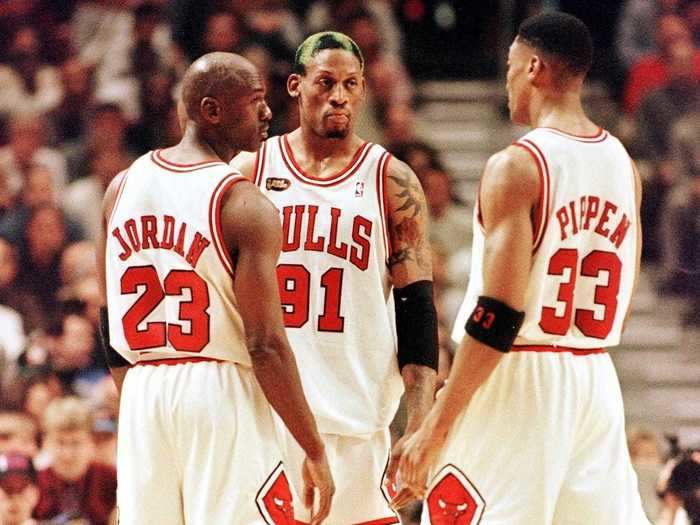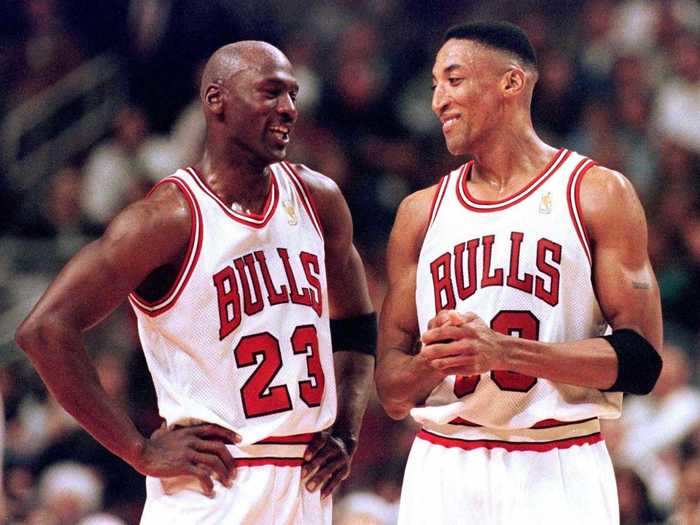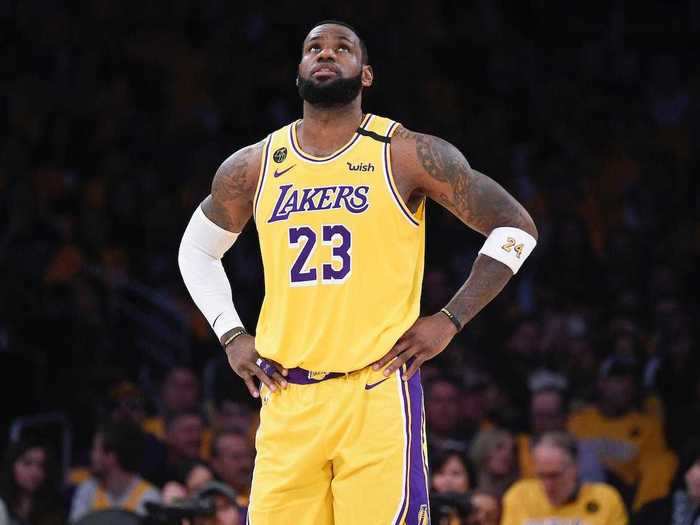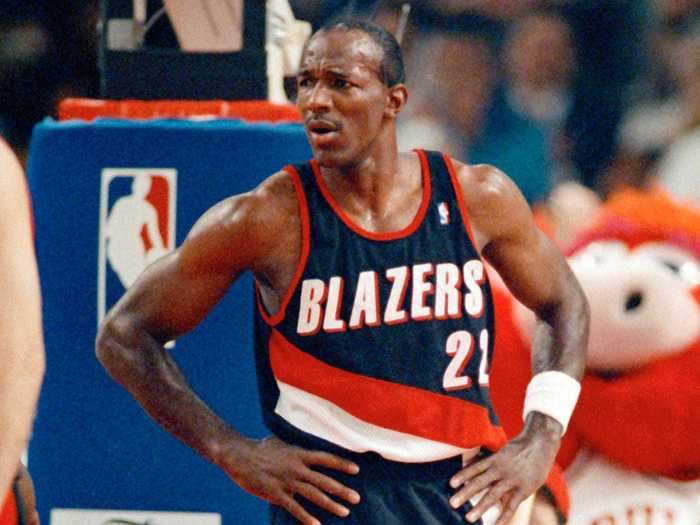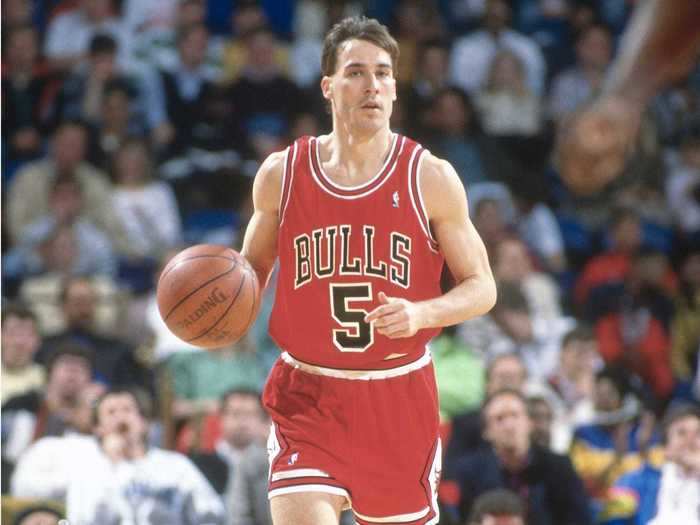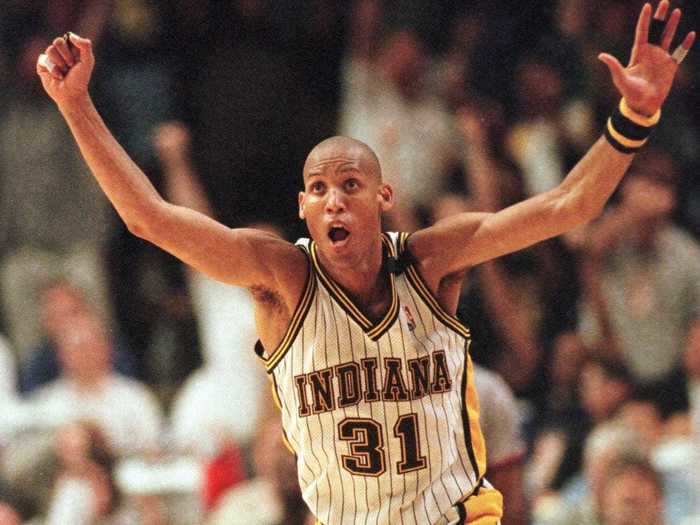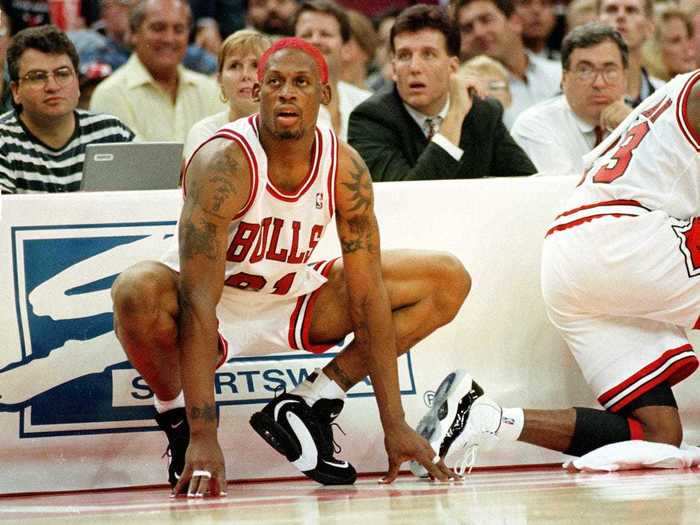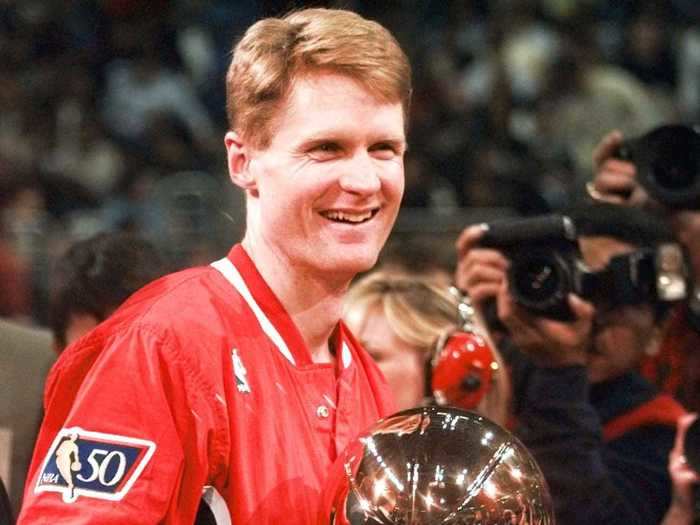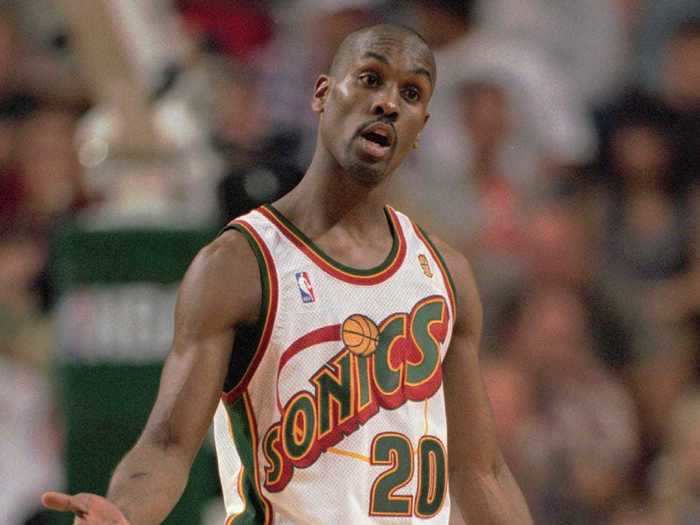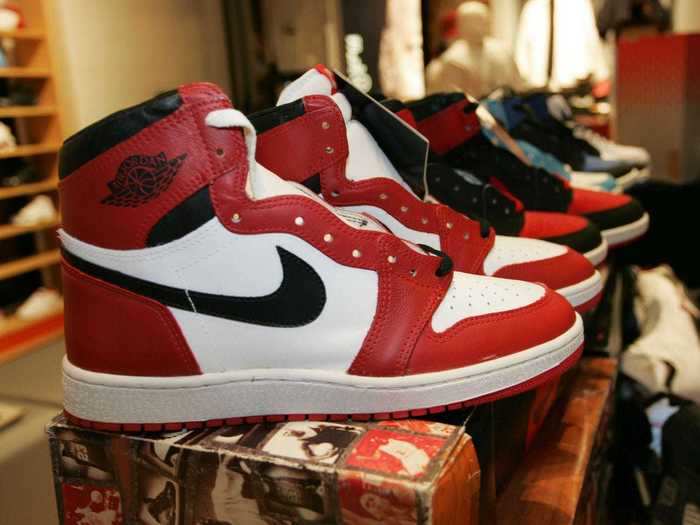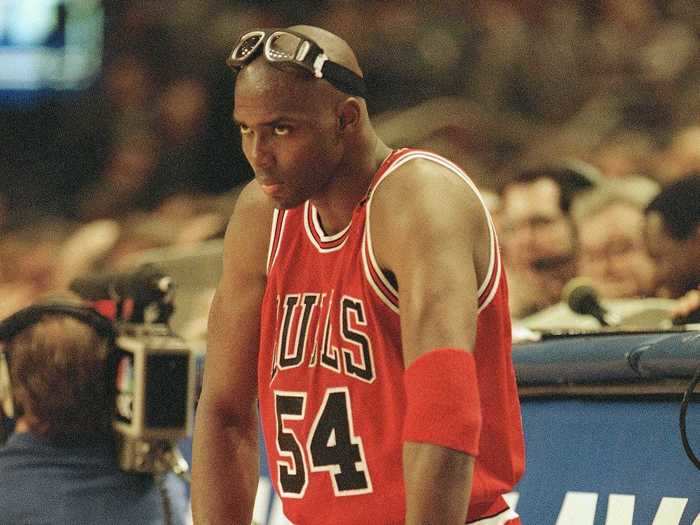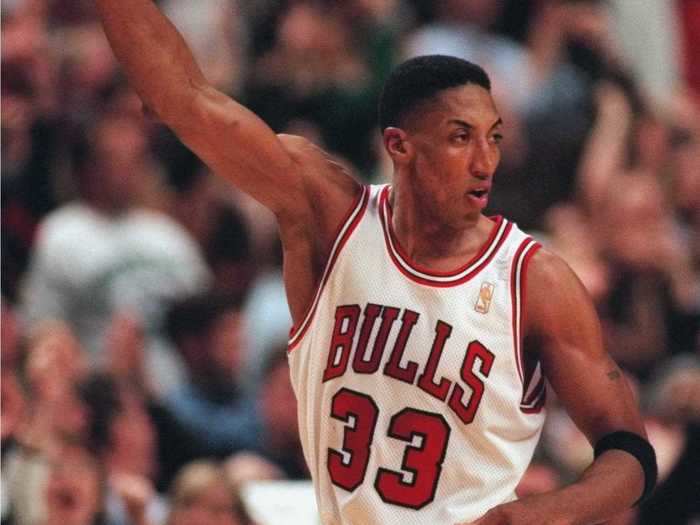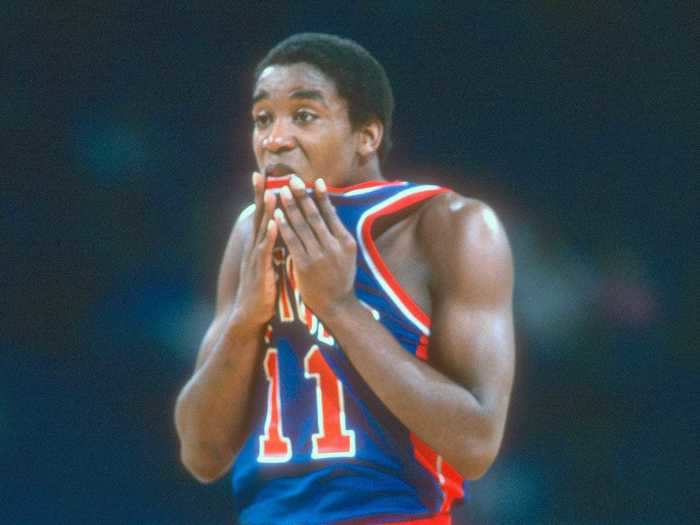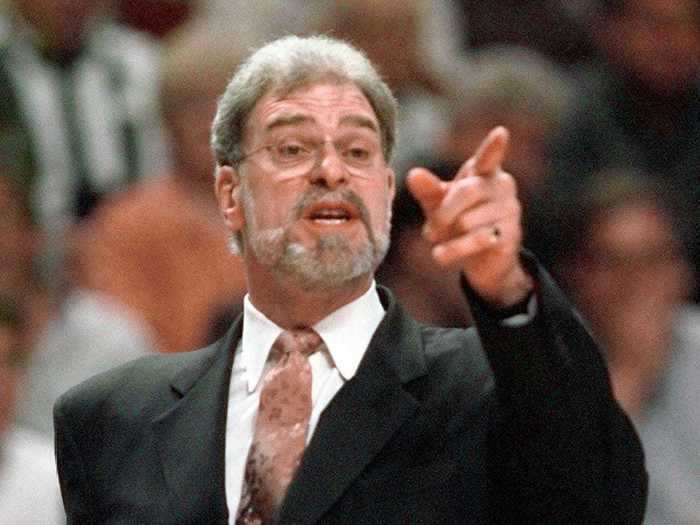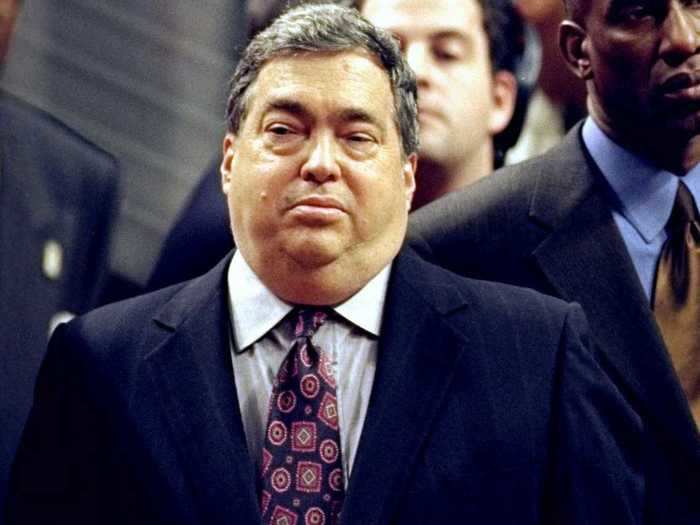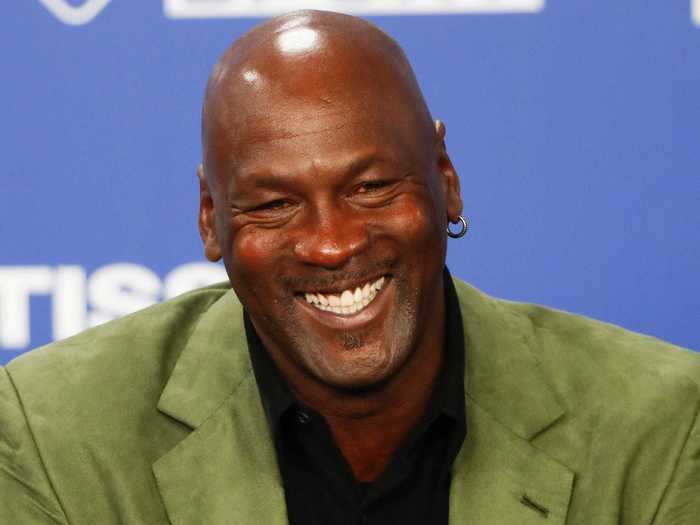Michael Jordan laughs in "The Last Dance."via "The Last Dance"/ESPN
- ESPN's docuseries on Michael Jordan and the Chicago Bulls, "The Last Dance," concluded on Sunday.
- After 10 episodes, several of Jordan's teammates (and even some opponents) came out looking like winners, thanks to the series' depictions, while others weren't so lucky.
- Our list of winners includes Jordan, Phil Jackson, and Steve Kerr, while the losers include Isiah Thomas, Jerry Krause, and the Seattle SuperSonics.
- Check out the full list of winners and losers below.
- Visit Insider's homepage for more stories.
ESPN's docuseries "The Last Dance" on Michael Jordan and the 1997-98 Chicago Bulls became the most popular documentary of 2020.
In a time without most sports, the 10-part series (which covered Jordan's career from 1984-1998) provided a needed dose of basketball.
The series was produced by Jordan and thus, very Jordan-centric, down to its portrayal of events. As a result, some key characters from that time came out of the series looking like winners, while a few others were on the receiving end of Jordan's opinions and fiery competitiveness.
With the series now over, here's a look at the biggest winners and losers of "The Last Dance."
Read the original article on
Insider
Now, see where key members of the 1997-98 Bulls are today...
Jeff Haynes/AFP/Getty Images
WINNER: ESPN
Reuters
Why they're a winner: "The Last Dance" became the most-watched documentary of 2020, exceeding the cultural phenomenon of "Tiger King." Even when there are no live sports, ESPN's ratings are down, but not getting killed thanks to the series. Jordan and the Bulls remain kings.
LOSER: LeBron James' bid for G.O.A.T.
Kelvin Kuo/AP Images
Why he's a loser: Most people already felt Jordan was the best NBA player over James. It will be harder to sway anyone after "The Last Dance." Resumé items aside, Jordan had a rare blend of athleticism, charisma, and mystique that seemed to wow even his top opponents. James will pass Jordan in most statistical categories, and he could even close the gap in the championships category. But as respected and beloved as James is, it's hard to imagine he'll reach the same — ahem— air as Jordan in the eyes of many hardcore and casual basketball fans.
WINNER: Michael Jordan's bodyguard
via "The Last Dance"/ESPN
Why he's a winner: "The Last Dance" has produced many memes, but few as rich as Jordan's bodyguard beating him in a quarter toss, then doing the famous Jordan shrug. In some of his only other screen time, the same guard is shown prominently walking behind Jordan in an epic slow-motion shot. In just a few moments in a 10-hour series, he manages to be one of the most electric characters of all.
LOSER: Clyde Drexler
John Swart/AP Images
Why he's a loser: A 10-time All-Star, five-time All-NBA member, and MVP candidate, Drexler averaged 23 points, 7 rebounds, 6 assists per game from 1986-1994, and led the Blazers to the Finals in 1990 and 1992. He's one of the 50 Greatest Players in NBA history. And Jordan guffawed when people compared him to Drexler, saying he used the 1992 Finals to show Drexler was not on his level. He was right.
WINNER: John Paxson
Focus on Sport/Getty Images
Why he's a winner: Paxson was a steady guard for the Bulls from 1985-1994 and hit several big shots in the playoffs. Those high-leverage shots were all shown in "The Last Dance" to illustrate Jordan's eventual trust in his teammates. While Paxson's iffy front-office record has turned many Bulls fans against him, the series was a reminder that he was a valuable teammate to Jordan.
LOSER: The unnamed pizza restaurant in Salt Lake City
Why it's a loser: Jordan and his trainer Tim Grover did not hide the fact that they believed Jordan had food poisoning during the famous "Flu Game" in the 1997 Finals. Jordan ordered delivery pizza late one night in Salt Lake City, Utah, only for five people to show up to deliver the pizza. Jordan said he threw up later that night. Not a glowing review of pizza in Salt Lake City.
WINNER: The Pacers
Al Behrman/AP Images
Why they're winners: The Pacers received rare credit from Jordan and the Bulls for being a tough opponent. In 1998, the Pacers pushed the Bulls to Game 7, then fought a close contest before Jordan, and the Bulls pulled away. The late '90s Pacers don't get the type of love that also-rans from the '90s, like the Knicks and Magic, but Jordan called them the toughest team the Bulls faced after the Pistons.
LOSER: Dennis Rodman
AP Images
Why he's a loser: For such a major character of the Bulls and NBA at that time, Rodman did not get a lot of air time on "The Last Dance." He was hardly shown during the sections on the historic 72-win season in 1995-96, and there wasn't much focus on his basketball skills outside of the third episode of the series. Rodman was not beloved by everyone in the NBA when he joined the Bulls in 1995. Still, the series largely painted him as a reclamation project, a player Phil Jackson had to manage, and a wild card Michael Jordan literally had to yank from bed to go to Bulls practice. In the later episodes, they showed him ditching Bulls practice to partake in the WWE, then dodging media by literally running out of the arena. It's not the worst depiction, but it's not flattering either.
WINNER: Steve Kerr
Beth A. Keiser/AP Images
Why he's a winner: Kerr momentarily stole the spotlight late in "The Last Dance," as the series dug into his background and how he landed with the Bulls. Kerr, of course, hit a game-winning shot in the 1997 Finals, proving his worth to Jordan. For fans too young to have seen Kerr play, it was a reminder that the now-iconic Warriors coach was also a decent player and beloved teammate on the best team in the NBA.
LOSER: Gary Payton, George Karl, and the Sonics
Elaine Thompson/AP Images
Why they're losers: Few teams in the series were dismissed as brutally as the Sonics. Jordan said he was fueled by George Karl ignoring him at a restaurant. The Bulls took a 3-0 lead in the Finals, but Seattle rallied to make the series 3-2. While the documentary credited Gary Payton's defense on Jordan for the tight series, Jordan heartily laughed it off, saying he had no problem with Payton's defense. Indeed, it doesn't appear Jordan took the threat of the Sonics very seriously.
WINNER: Nike
David Zalubowski/AP Images
Why it's a winner: In 1984, Nike was not the powerhouse company it is today. It barely got a meeting with Jordan. Instead, thanks to the intervention of Deloris Jordan, Michael's mother, they got a meeting with the Bulls rookie and landed him. As Jordan's former agent, David Falk, said in the series, Nike expected to sell $3 million of Air Jordans in Year 1 and instead sold $126 million. Air Jordan obviously became a global brand from then on.
LOSER: Horace Grant
Kathy Willens/AP Images
Why he's a loser: Grant, a key member of the Bulls from 1987 to 1994, took an odd amount of criticism in the documentary. The series suggested Grant was affected by the Pistons' physical play and mind games during their playoff battles. Jordan said Grant was the anonymous source in the locker room who fed information to "Jordan Rules" author Sam Smith (Grant denied it in the series). And Grant was later depicted as a villain in the 1995 playoffs when he helped the Magic beat the Bulls in the first round — Grant admitted to being motivated by not being re-signed by the Bulls.
WINNER: Scottie Pippen
Beth A. Keiser/AP Images
Why he's a winner: Another fairly obvious one, given his success and legacy in the NBA. But Jordan has always been complimentary of Pippen and remains so. Furthermore, the series seems to sympathize with Pippen over being underpaid and unable to get a new contract from the Bulls in 1997. Even Pippen's lowest point — refusing to enter a game on the final play because he was not getting the ball — is forgiven by all of his teammates.
LOSER: Isiah Thomas
Focus on Sport/Getty Images
Why he's a loser: Thomas is arguably the biggest non-Bulls villain in the series. His "Bad Boy" Pistons were one of the biggest challenges Jordan and the Bulls ever faced, and at the end of it, Thomas and his teammates walked off the floor without shaking hands. For added salt in the wound, Jordan called him an "a--hole" after Thomas said he would shake hands if he could do it all over again. Thomas also was left off the 1992 Dream Team, likely because Jordan did not want to play with him.
WINNER: Phil Jackson
Michael S. Green/AP Photo
Why he's a winner: Like Jordan, Jackson had one of the most successful careers in NBA history, and thus, it's hard ever to paint him as a loser. But the series generally characterized him as a worldly figure who could relate to everyone, manage personalities, and get the best out of a team. It's a kind reminder that Jackson – whose stint as president of the Knicks left a sour taste to the end of his time in the NBA — was considered one of the best coaches in American sports.
LOSER: Jerry Krause
Jonathan Daniel/Getty Images
Why he's a loser: The depiction of Krause, the Bulls GM from 1985-2004, in the series has drawn criticism, in part, because Krause died in 2017 and is not around to defend himself. The series paints Krause as one of the top villains in Jordan's career — a man who could not get over the lack of credit he received for the Bulls' success and was hellbent on breaking up the Bulls after 1998 to rebuild. The series revealed that Jordan and his teammates were determined to beat any player Krause was fixated on (e.g., Toni Kukoc or Dan Majerle) and often mocked his height and weight. Until the final moments of the documentary, Krause rarely received credit for drafting well and building a rock-solid team, and his side of the story was never presented.
WINNER: Michael Jordan
AP Photo/Thibault Camus
Why he's a winner: Duh, there is no retelling of Jordan's career that could make him a loser. But "The Last Dance" is particularly flattering in its depiction of Jordan's career: no challenge is too great, no enemy too strong. Bad games were often skipped over or only briefly mentioned, and his defeats were justified: his teammates weren't good enough, he didn't have enough time to play baseball, he didn't have enough time to return to basketball, and so on. Perhaps it's because Jordan himself was a producer of the documentary and had the final say on all matters.
Even still, the series was either a powerful reminder to those who watched live — or powerful introduction to those who didn't — that Jordan is likely the greatest basketball player of all-time.

